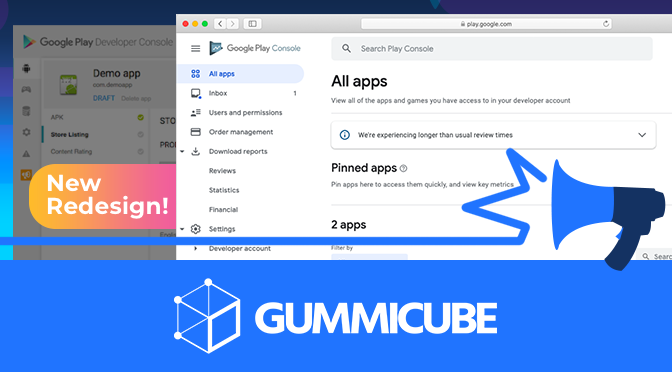
App Store Holiday Schedule 2020
Posted on November 23rd, 2020
When is the App Store Holiday Schedule 2020? Learn about the dates of this year's shutdown and how to prepare.

Among the many changes Apple announced with iOS 14, the Apple IDFA Policy may have flown under the radar. However, its impact on mobile marketing is not to be underestimated.
The policy change can have a significant effect on mobile acquisition campaigns, so app developers and mobile marketers should brace themselves for the tough changes ahead.
Update: Apple has announced that the update has been delayed until "early next year" to provide more time to prepare.
Apple’s Identifier for Advertisers (IDFA) helps mobile marketers see how well their ads and ad networks perform. IDFA enables marketers to track KPIs such as downloads, retention and signups to determine if their ads are achieving the intended results and optimize accordingly.
Say an app developer launches a new marketing campaign. Through IDFA, they’ll know if a click on an ad leads to an install on a device, if the user who clicked on the ad sets up an account and if they’re using the service from the app. This indicates to the developer that the ad is working and to what extent.
This can also be used to identify valuable user demographics for each ad. IDFA is used to help identify what ads certain users respond to in order to deliver optimized ad marketing and help marketers reach their core audiences.
Previously, IDFA was turned on for users by default and had to be manually turned off. With iOS 14, that is no longer the case.
Instead, users must opt-in to use IDFA. When they do, they’ll receive a permission dialogue asking for permission to “track you across apps and websites owned by other companies.”
Given growing concerns around user and data privacy, it is unlikely that users will actively seek and grant these permissions. This essentially kills IDFA for marketers without actually removing it from the platform.
What this change will do is make it more difficult for marketers to measure the results of their ads and target specific users.
This will primarily impact mobile user acquisition for mobile ads outside of Apple Search Ads, such as on Facebook or Google. Marketers need to be able to track the effectiveness of their advertisements on those networks, but unless users specifically opt in for those apps, they’ll be unable to.
Enter SKAdNetwork, Apple’s new framework for mobile attribution.
SKAdNetwork is designed with a focus on privacy. This mobile attribution framework will inform advertisers which ads resulted in desired actions while providing no information about the users or devices they’re used on.
If a marketer launches an ad through an ad network and a user on an iOS 14 device downloads an app through it, Apple will send a postback to the ad network. This will validate the conversion without including any user or device-specific information.
It will still provide data on which publisher drove which install. It will not include any identifying information, such as location or other user-level data.
How will this impact Apple Search Ads? Since Search Ads are focused entirely on mobile user acquisition within the App Store, and its ad targeting is determined by keywords, it may feel like it will not lose much from the change to IDFA.
However, Search Ads reporting only provides so much information. While it does show impressions, conversions, CPT and CPA, finding information like registrations or in-app purchases tied to ad campaigns requires additional attribution tools. How SKAdNetwork will impact this has yet to be seen.
Mobile marketers have until the launch of iOS 14 to prepare for the change to IDFA. New iOS launches have traditionally been in September, which gives marketers a few months to switch to SKAdNetwork support. Failing to act in time risks losing insights into your mobile ad performance.
This will undoubtedly shake up mobile advertising, but with enough preparation, app marketers will be able to overcome the challenge.
Want more information regarding App Store Optimization? Contact Gummicube and we’ll help get your strategy started.

When is the App Store Holiday Schedule 2020? Learn about the dates of this year's shutdown and how to prepare.

Apple's App Store Guidelines have strict privacy requirements. Developers now must provide information to users on the App Store listing regarding the data they access.

The Google Play Developer Console has been updated with a new design and adjusted tools. What's different, and how will it impact App Store Optimization?